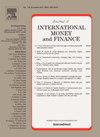对冲基金经理的生命周期绩效
IF 3.3
2区 经济学
Q2 BUSINESS, FINANCE
引用次数: 0
摘要
我们证明,对冲基金经理的工作经验和业绩之间呈现驼峰形关系。这种观察到的模式反映了职业关注和激励渠道两种截然不同的影响之间的动态相互作用。在他们职业生涯的早期,基金经理面临着重大的职业问题,这给他们的工作施加了很大的压力。与此同时,管理者也有很强的动力去积累自己的专业知识,从而取得更好的业绩。然而,随着它们的性能稳步上升,改进的速度会减慢。这是因为他们对事业的担忧开始消退,导致努力的减少,抵消了他们的激励效应。因此,在达到5年左右的峰值后,它们的表现往往会随之恶化。此外,我们发现基金经理的投资技能对基金绩效有积极的贡献,女性经理或硕士学位持有人的表现优于其同行。基金规模通过规模收益递减与业绩挂钩。规模较小的基金表现更好,而规模较大的基金则吸引了更好的基金经理。金融中心的管理者表现优于非金融中心的管理者,主要是由于分类效应和学习效应。之前有基金相关背景的经理比没有背景的同行表现得更好。然而,从长期来看,金融中心的经理和那些有基金相关背景的经理的优异表现都会减弱。在一个自然实验环境中,我们证明了股市崩盘对管理者的绩效有永久性的负面影响。我们的研究结果在不同数量的基金经理重叠、投资策略和另类业绩衡量指标中都是稳健的。本文章由计算机程序翻译,如有差异,请以英文原文为准。
Life cycle performance of hedge fund managers
We document that hedge fund managers exhibit a hump-shaped relationship between their work experience and performance. This observed pattern reflects the dynamic interplay between two contrasting effects of career concerns and incentives channel. In the early years of their careers, fund managers face significant career concerns, which exert high pressure to induce effort in their jobs. Meanwhile, managers also have a strong incentive to build their expertise, leading to better performance. However, as their performance steadily ascends, the rate of improvement decelerates. This is because their career concerns start to ebb away, leading to a cutback on effort that offsets their incentive effects. Consequently, after reaching its peak around the five-year mark, their performance tends to deteriorate afterwards. Additionally, we find that manager’s investment skill contributes positively to fund performance and female managers or master degree holders perform better than their counterparts. Fund size links to performance through diminishing returns to scale. Smaller funds exhibit better performance, whereas larger funds attract better managers. Managers in financial centers outperform their peers in non-financial centers due to both sorting and learning effects. Managers with a prior fund-related background perform better than their peers without it. However, the outperformance of both managers in financial centers and those with fund-related background diminishes in the long run. In a natural experiment setting, we show the stock market crash had a permanent negative impact on the performance of managers. Our findings are robust across varying numbers of manager-fund overlaps, investment strategies, and alternative performance measures.
求助全文
通过发布文献求助,成功后即可免费获取论文全文。
去求助
来源期刊

Journal of International Money and Finance
BUSINESS, FINANCE-
CiteScore
4.20
自引率
4.00%
发文量
141
期刊介绍:
Since its launch in 1982, Journal of International Money and Finance has built up a solid reputation as a high quality scholarly journal devoted to theoretical and empirical research in the fields of international monetary economics, international finance, and the rapidly developing overlap area between the two. Researchers in these areas, and financial market professionals too, pay attention to the articles that the journal publishes. Authors published in the journal are in the forefront of scholarly research on exchange rate behaviour, foreign exchange options, international capital markets, international monetary and fiscal policy, international transmission and related questions.
 求助内容:
求助内容: 应助结果提醒方式:
应助结果提醒方式:


